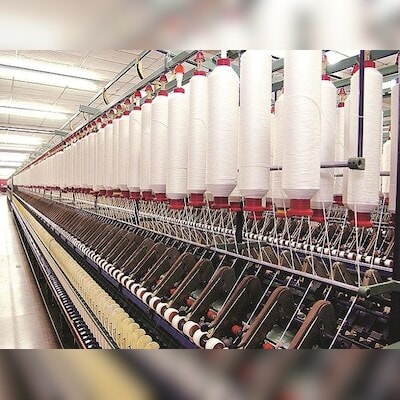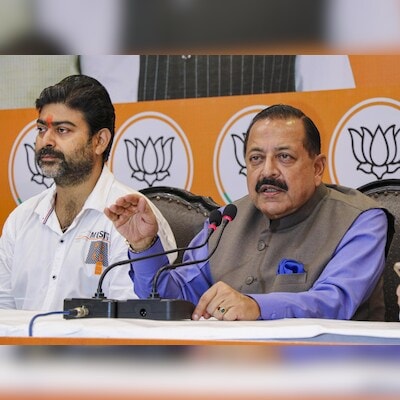)
Currently, herbicides are major players in the agrochemicals industry with a market share of 40 per cent (File Photo)
The government is deliberating complex policy decisions regarding Herbicide-tolerant BT (HTBT) cotton and the use of herbicide ‘glyphosate’ as industry demands intensify, Agriculture Commissioner P K Singh said on Friday.
The key issue revolves around permitting widespread glyphosate application in cotton farming, even as discussions are underway about officially introducing HTBT cotton varieties in the country.
Click here to connect with us on WhatsApp
“On one hand, the industry is demanding the use of glyphosate in cotton. Then how to go for that?” Singh said addressing a brainstorming session on emerging challenges and management strategies for weed management in India.
A dedicated committee is presently studying the implications of introducing herbicide-tolerant cotton varieties, at a time when glyphosate could potentially be used without such modifications, he said.
Such policy matters remain unresolved and require thorough examination, the official emphasised.
German life science company Bayer has applied for regulatory approval of Bollgard II Roundup Ready Flex (BG-II RRF) in India, a herbicide-tolerant and insect-resistant variety of BT cotton.
India, being a major cotton producer, has traditionally adopted a cautious approach towards genetically modified crops and associated farming practices.
The agriculture commissioner also called for an “integrated approach” for weed management in the farm sector amid growing labour shortage across the country.
“New things are coming… Can there be an integrated approach (for weed management) with a mix of mechanisation, herbicide application and herbicide-tolerant varieties?” Singh said.
Currently, herbicides are major players in the agrochemicals industry with a market share of 40 per cent, he said, while emphasising the need for developing specific solutions for weed control.
Singh also said there is a need to “relook” at the positive impact of interculture operations on crop yields that were traditionally promoted.
As the agricultural landscape transforms, ICAR Deputy Director General (Natural Resource Management) S K Chaudhari said the future of weed management will likely involve advanced technologies.
Stating that climate change poses significant risks to agricultural productivity, including the proliferation of weeds, he said, effective weed management strategies will be essential to mitigate these impacts and ensure sustainable food production as global food demands rise
As the agricultural sector moves towards achieving net-zero emissions by 2070, there is a growing emphasis on chemical-free farming practices.
However, transitioning to organic or natural farming methods presents challenges in weed management due to increased competition from weeds when using organic inputs, he added.
Federation of Seed Industry of India (FSII) Chairman Ajai Rana said, “Weeds are like Ravans, which we have not addressed good enough. …Weed control has not got desired attention in our system. This is a need of the hour when the labour cost is increasing.”
A collaborative research study “Weed Management: Emerging Challenges and Management Strategies”, unveiled during event, estimated weeds are responsible for about 25-26 per cent of yield losses in kharif crops and 18-25 per cent in rabi crops, translating to an annual economic loss of around Rs 92,000 crore in the crop productivity across India.
The study, which surveyed 11 states, 30 districts and seven crops, said the average expenditure on weed control per acre varies between Rs 3,700 and Rs 7,900.
ICAR-Directorate of Weed Research (DWR) Director J S Mishra and other officials from ICAR were present at the event organised by DWR and FSII.
(Only the headline and picture of this report may have been reworked by the Business Standard staff; the rest of the content is auto-generated from a syndicated feed.)
First Published: Oct 04 2024 | 4:54 PM IST















Leave a Reply